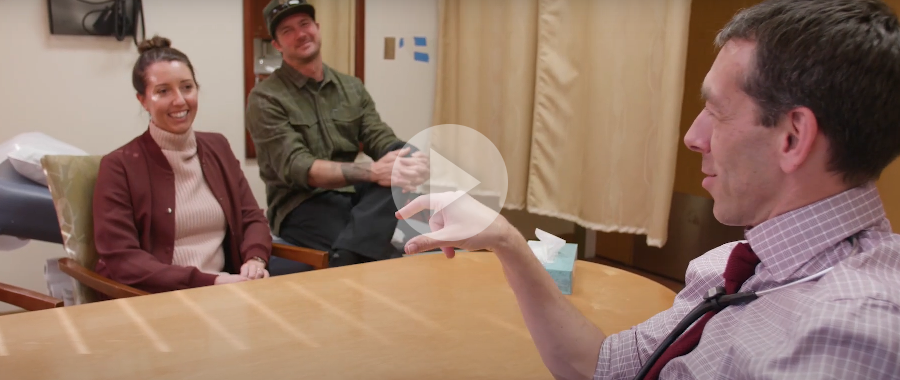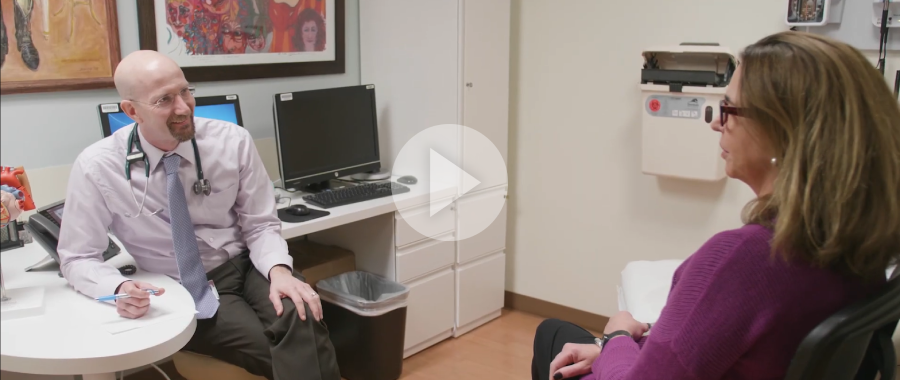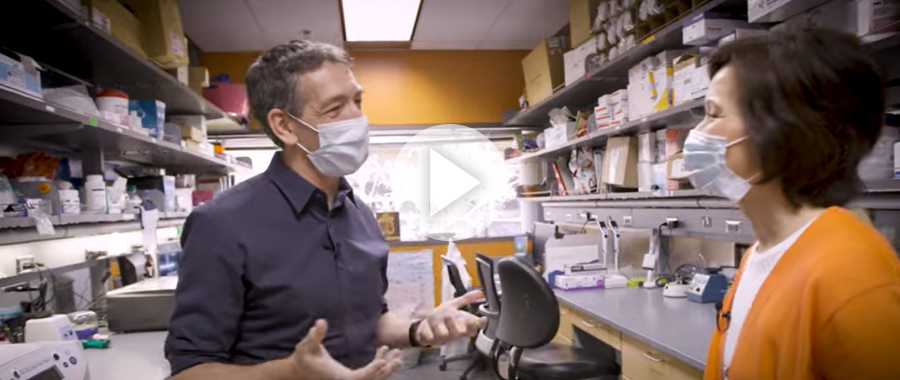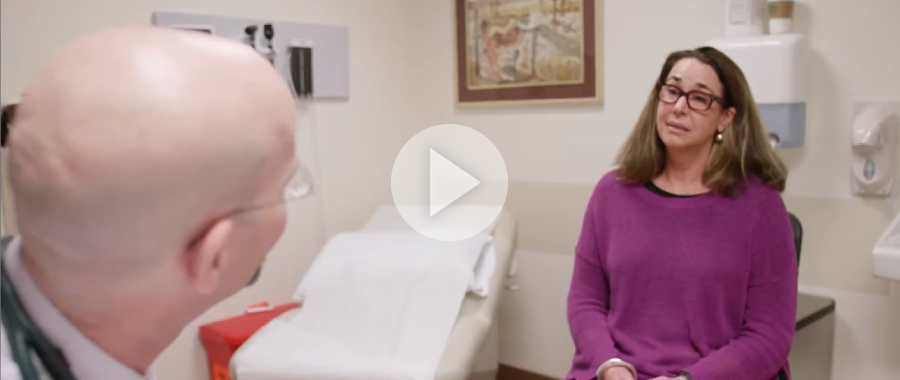What We Offer You for Hereditary Heart Disease
- Internationally recognized expertise in genetic heart conditions such as aortic diseases, arrhythmias, cardiomyopathies, and lipid disorders. Go to Conditions Treated
- Advanced evaluation and treatment, with genetic counseling and testing, the latest medications and devices, and specialized procedures. Go to Evaluation and Treatment
- Cohesive, family-centered care, with personalized plans for all family members who may be at risk for heart disease. Go to Family Care
- Coordinated transitional care with Stanford Medicine Children's Health to ensure your child a smooth transfer to our adult program. Go to Transition from Pediatric Care to Adult Care
- Promising clinical trials and research that identify the genes behind inherited disease and offer emerging therapies. Go to Clinical Trials
- Unique team-based approach, bringing together highly skilled specialists, surgeons, genetic counselors, cardiovascular nurses, and care coordinators. Go to Your Genetic Heart Disease Care Team
- Comprehensive support, with tailored plans from dietitians, family planning with OB/GYNs, and counseling from heart-focused psychologists. Go to Support Services
- Ease of access, with phone appointments, video visits, and digital monitors that record your activity and heart rate. Go to Accessing Care
The Stanford Center for Inherited Cardiovascular Disease is one of the world’s largest centers focused on genetic disorders of the heart and blood vessels. Hundreds of new patients and their families worldwide seek our care each year.
Our team provides coordinated expertise for properly diagnosing, treating, and managing genetic cardiovascular diseases. We care for people with all inherited cardiovascular conditions, including:
Aortic diseases
- Bicuspid aortic valve disease
- Loeys-Dietz syndrome
- Marfan syndrome
- Vascular form of Ehlers-Danlos syndrome
Arrhythmias
- Brugada syndrome
- Catecholaminergic polymorphic ventricular tachycardia (CPVT)
- Long QT syndrome
- Hypertrophic cardiomyopathy (HCM)
- Arrhythmogenic cardiomyopathies (ACM) and arrhythmogenic right ventricular cardiomyopathy (ARVC)
- Dilated cardiomyopathy (DCM)
- Familial ATTR amyloidosis (in partnership with our Amyloid Center)
- Left ventricular non-compaction (LVNC)
- Neuromuscular-related cardiomyopathy (in partnership with our Neuromuscular Program)
Cholesterol disorders
- Familial hypercholesterolemia (FH)
- Familial lipid disorders
We were the first center in the world to bring specialized heart genetics experts together in one place for all the care you need.
Without proper care, genetic heart diseases can lead to heart failure, sudden cardiac arrest, or early heart attack. Our team ensures you and your family receive the latest, most effective interventions and treatments.
INNOVATION HIGHLIGHTS
Stanford Medicine researchers developed a drug that treats obstructive hypertrophic cardiomyopathy. With this condition, the heart beats too powerfully, causing the muscle to become thick and obstruct normal blood flow. Now approved by the FDA, cardiac myosin inhibitors create a more normal heartbeat and help the heart work more efficiently. Learn more about the Stanford Medicine research that led to this heart-saving drug.
You and your family will receive the full range of evaluation and treatment options for hereditary cardiovascular conditions, including:
Your treatment planning begins with a comprehensive evaluation so we can understand your cardiovascular health. We ask questions about your health history and family medical history, and take detailed images of your heart and blood vessels. We may also collect blood and saliva samples to test in a lab.
Expert genetic counseling and testing are key components of comprehensive care for an inherited heart condition. Genetic test results can:
- Confirm a diagnosis
- Guide treatment
- Identify other family members who may be affected by the same condition
- Help with family planning
Some people with genetic heart disease may only need annual checkups, while others require additional care. We work together to develop your care plan according to your needs and goals. Treatments include:
Medical management
- Diet and exercise recommendations
- Medication guidance, including the latest therapies and clinical trials
Devices
- Alcohol septal ablation
- Cardiac ablation
- Coronary angioplasty
- Myectomy
- Aortic surgery
- Coronary artery bypass graft (CABG)
- Heart valve repair or replacement, including valve-sparing aortic root replacement
- Mechanical circulatory support (MCS)
- Heart transplant
Inherited cardiovascular diseases run in families. When one family member learns they have a genetic condition, we can evaluate your entire family to determine who else might be at risk, including the youngest patients.
We can help pregnant families and those planning their families with early evaluations to help navigate care for future generations. Our close affiliation with Pediatric Inherited Cardiovascular Disorders program at Stanford Medicine Children’s Health allows us to seamlessly transition care from womb to infancy to ensure your child receives specialized care right away.
We work with Stanford Medicine Children’s Health to ensure that children with genetic heart conditions and diseases have a smooth transition from pediatric to adult care.
Stanford Health Care Now
Innovation Through Clinical Research
Stanford Cardiovascular Institute is among many organizations actively participating in groundbreaking research and clinical trials to evaluate new and better ways to diagnose, treat, and manage inherited cardiovascular diseases. Participating in a trial may give you access to experimental therapies that are not available otherwise.
Clinical trials are research studies that evaluate a new medical approach, device, drug, or other treatment. As a Stanford Health Care patient, you may have access to the latest, advanced clinical trials.
Open trials refer to studies currently recruiting participants or that may recruit participants in the near future. Closed trials are not currently enrolling, but similar studies may open in the future.
Our providers collaborate to deliver coordinated, comprehensive care for you and your family.
Your Doctors
Cardiologist
Our cardiologists are recognized leaders in genetic heart disease who have written many national care guidelines and published numerous papers. At our clinic, a cardiologist carefully reviews your medical history and previous imaging. They may order additional tests, such as specialized cardiopulmonary exercise testing, and will discuss your care team's findings and recommendations with you.
View All {0} Cardiologists »Cardiac Electrophysiologist
These cardiologists further specialize in diagnosing and treating abnormal heart rhythms (arrhythmias). Our center has electrophysiologists who specializes in inherited diseases.
View All {0} Cardiac Electrophysiologists »Cardiothoracic Surgeon
Cardiothoracic surgeons with expertise in treating genetic heart conditions work closely with other heart specialists to help you choose the best path of care. They also partner with electrophysiologists and interventional cardiologists to perform newer, minimally invasive techniques.
View All {0} Cardiothoracic Surgeons »Advanced Practice Provider
Advanced practice providers (APPs) are health professionals, such as physician assistants and nurse practitioners, who practice medicine under a doctor's supervision. They can perform routine exams, order lab work and X-rays, prescribe medicines, and counsel people about their health.
View All Advanced Practice Providers »Extended Care Team
Cardiovascular Nurses
Our clinic has the world’s first group of dedicated advanced practice nurses specially trained in cardiovascular genetics. Their focus on genetic heart diseases helps them recognize your unique needs so they can deliver highly personalized care.
View All {0} Podiatrists »Genetic Counselors
Genetic counselors collect detailed health information for you and your family members. They discuss with you the benefits and risks of genetic testing. If you decide to get tested, they interpret the results and discuss what they could mean for you and your family.
View All {0} Podiatrists »Patient Care Coordinators
People with genetic heart diseases often have treatment plans that require extensive logistics. Our patient care coordinators assist with the details, including helping collect your medical records and previous test results.
View All {0} Podiatrists »Research Coordinators
If you qualify for a clinical trial for genetic heart disease care, our research coordinators guide you through the process. They educate you about what to expect during the study, answer your questions, and schedule your appointments.
View All {0} Podiatrists »Support Services
Our program focuses on your specific needs and preferences with comprehensive support services, including:
Dietitians: Dietitians from Stanford Health Care’s Preventive Cardiology Clinic work with you to develop a personalized, heart-healthy eating plan that works best for you.
Psychological support: Our cardiologists, genetic counselors, and nurses help you through the emotional challenges of a genetic heart disease diagnosis. If you need additional support, we can connect you with a psychologist who focuses on cardiovascular care. Specialized support like this is rare, and our service is the largest of its kind in the country, providing a model for others.
Family planning: If you wish to have children, our team can help you understand the implications of genetic heart disease. We partner with Stanford Health Care OB/GYNs for family planning services, including pre-implantation genetic diagnosis (PGD) to screen embryos for genetic changes.
Support Group
Dilated cardiomyopathy/hypertrophic cardiomyopathy support group: This monthly virtual support group includes a peer-led online discussion with featured guest speakers. Virtual meetings occur 6-7:30 p.m. PT the first Monday of each month. Register here.
Quarterly SCICD eNewsletter
We bring you the latest news from the Stanford Center for Inherited Cardiovascular Disease. Read the latest issues or join our mailing list.
Additional support services include:
We make it easy to access world-class genetic heart disease care through:
For Referring Physicians
PHYSICIAN HELPLINE
Fax: 650-320-9443
Monday–Friday, 8 a.m.–5 p.m.
Stanford Health Care provides comprehensive services to refer and track patients, as well as the latest information and news for physicians and office staff. For help with all referral needs and questions, visit Referral Information.
You may also submit a web referral or complete a referral form and fax it to 650-320-9443 or email the Referral Center at ReferralCenter@stanfordhealthcare.org.
To request an appointment with a specialist, call 650-736-7878 or email familyheart@stanford.edu.






